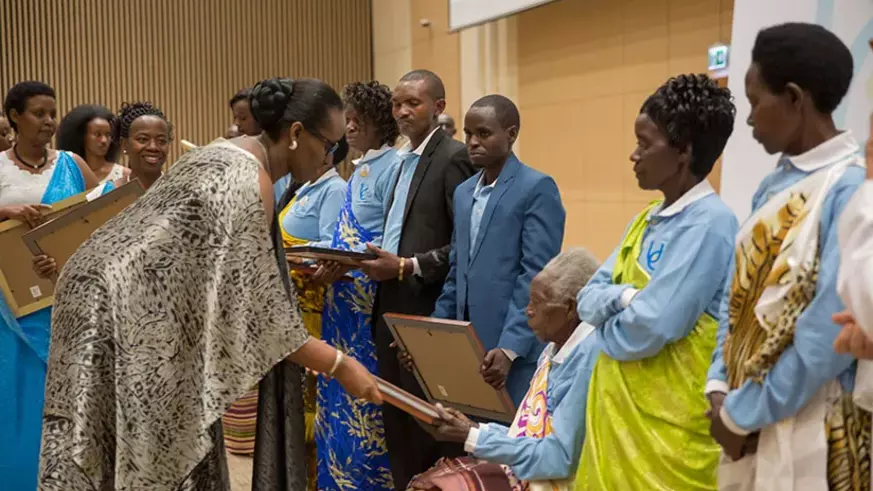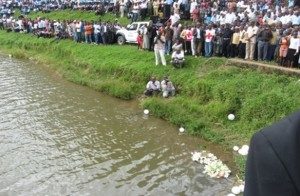
By Emmanuel Ntirenganya, The New Times
The Association of Students Survivors of Genocide (AERG) and the Association of Graduates Genocide Survivors (GAERG) have given cows to people who rescued Tutsis during the Genocide against the Tutsi in recognition of their noble act.
The donation is part of the activities to mark the 25th Anniversary of AERG.
They also donated cows to economically vulnerable genocide survivors.
Overall, 25 cows were distributed to Hutus who protected Tutsis from the genocidaires, ex-combatants who were disabled during the war to stop the genocide, and the economically vulnerable Genocide survivors.
The Executive Secretary of AERG, Ismael Bakina, disclosed that five people in Eastern Province received one cow each.
The exercise took place in different parts of the country in November.
“We highly value their (the rescuers) acts,” Bakina said.
He said that the recognition conveys a strong message to the public that their resolute decision to save Tutsis amidst the risks is rewarding.
Egide Gatari, the president of GAERG told The New Times that: “We understand that a cow is meaningful in the Rwandan culture; it implies love, and good relationship among people.”
Eugenie Yankurije, one who hid Tutsi during the Genocide –told The New Times that she received a cow from AERG-GAERG on Friday last week.
Together with her husband they hid six children and their mother in order to protect them from the perpetrators.
“The children were being pursued by genocide perpetrators in Kayonza,” she disclosed, “I know and value humanity…I thank God for having created me with a loving heart.”
Some of the children that she helped are now old people and have completed their studies.
“I was happy with this gratitude from Genocide survivors for my endeavour to help save lives. It’s a surprise from them. God bless them,” she said.
Generally, those who survived the Genocide argue that it was not thanks to their bravery, rather through the outstanding courage of the RPF/Inkotanyi army and other Rwandans with a caring heart who protect them.
A pilot study carried out in 60 sectors – in 416 sectors of the country between 2009 and 2020 – identified 271 people who hid Tutsis during the Genocide, according to Ibuka, the umbrella organisation of Genocide survivors associations.
AERG was formed in 1996, while GAERG was created in 2003.

